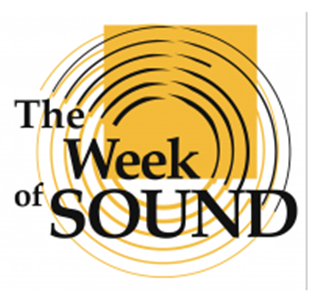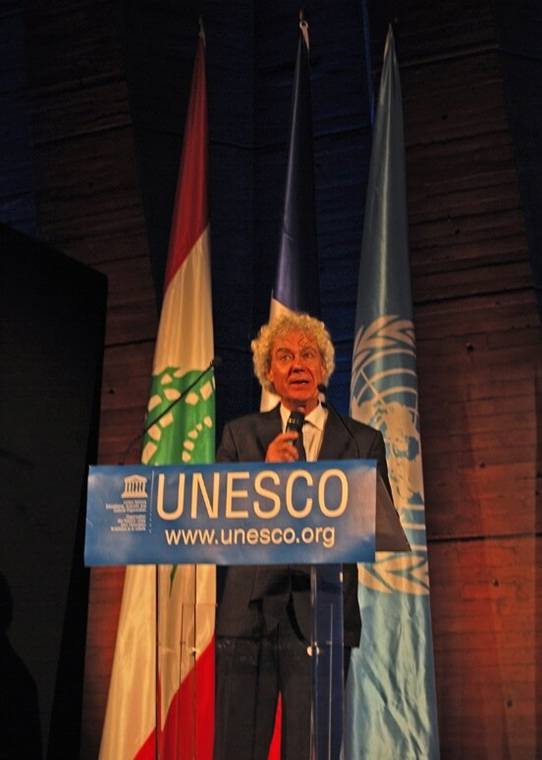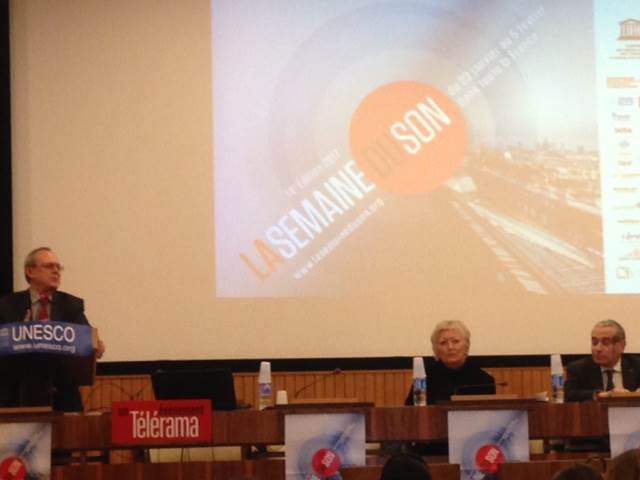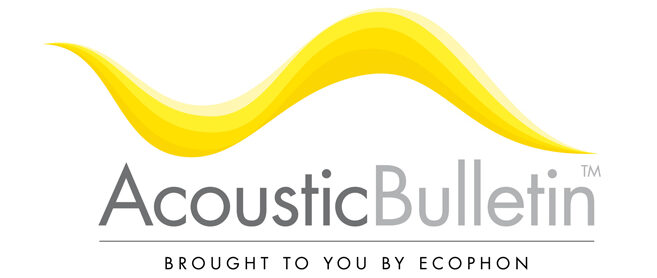
Each year in France “The Week of Sound” / “La Semaine du Son” pulls together a series of events that constitutes a vast range of knowledge, practical know-how and information about sound and the importance of the quality of the sound environment. It has a transversal – cultural, medical, industrial, educational and economic – approach and is recognised to be of societal interest.
A Charter for Sound is being adopted globally
Although initially a French affair, the initiative is starting to have a more global impact. It was an honour to attend this event which was part of the Week of Sound at UNESCO’s headquarters in Paris last month called The Sound For A New Urbanism.

The evening event was chaired by Christian Hugonnet, and contained several presentations mainly focused on the “Charter for Sound”, which UNESCO signed two years ago.
The “Charter for Sound” aims to increase awareness and respect for the importance of sound in our environment. It highlights the importance of sound in terms of education and states: “Make a societal priority of acoustic treatment of public places, including schools.”
This year UNESCO announced that the charter is now starting to be adopted by more and more countries (Lebanon were the special guest this year). This is the first time in history that sound becomes a local consideration for some UNESCO countries now and they believe this will have very positive consequences for all the 193 United Nations countries in the future.
 Frank la Rue from UNESCO made a very powerful and heartfelt speech about how fundamental sound is to our existence.
Frank la Rue from UNESCO made a very powerful and heartfelt speech about how fundamental sound is to our existence.
He stated:
“Sound is the way we think and behave. Sound is all around us in nature. It is our first sense even before we are born. We are shaped by the sounds of our home, our parents, our community, during our whole learning process. We should appreciate sound just as we should appreciate the environment in general. As sound now, like the environment, is becoming increasingly contaminated with unwanted noise which has a detrimental effect on our well-being. Sound is not only external to us in and around buildings and in suburban areas but our inner voice when thinking. It is also our voice for creativity, reasoning etc.”
About the Charter
The Sound Charter covers five main topics, some of the actions for each topic include:
1. Health – Spreading information, encouraging hearing tests and wearing of hearing aids as well as supporting research into this area.
2. The sound environment – Integrating acoustic and sound data in planning documents and making it a societal priority to acoustically treat public places, including schools.
3. Techniques for recording and sound reinforcement – Integrating the teaching of sound in school curricula and developing sound archives in charge of sound heritage.
4. Sound and picture relationship – Regulating the sound levels between all television programs, radio or film and encouraging the development of cinema theatres with acoustic comfort.
5. Musical expression and practice – Encouraging and facilitating the practice of music as well as raising awareness around that musical practice is an element of personal and collective development, which creates meetings and improves social ties.
For more info please contact Yoan LeMuet.
To read the full Charter for Sound in English click here.
Read the full Charte de La Semaine du Son © in French click here.
Read the Principiile Săptămânii Sunetului here.
Read the Carta de la Semana del Sonido here.
Read the Charta der « La Semaine du Son » here.
Read the 音声週間憲章© here.

